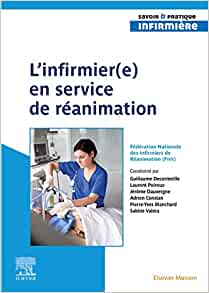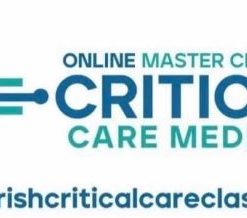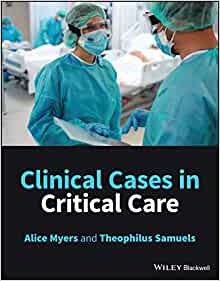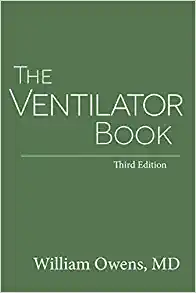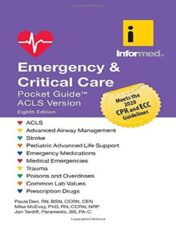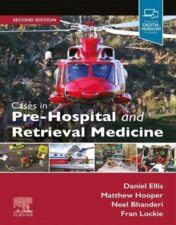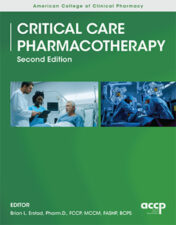Discover the Best Intensive Care Books at DentalBooks.net!
Are you looking for the best intensive care books to help you stay up-to-date on the latest developments in the field? Look no further than INTENSIVE CARE BOOKS Our selection of intensive care books covers a wide range of topics, from basic principles and techniques to advanced clinical applications. Whether you’re a student or a professional, you’ll find the perfect book to help you understand and apply the latest advances in intensive care. With our comprehensive selection of titles, you can be sure to find the right book for your needs. So don’t wait any longer – explore our selection of intensive care books today and get the knowledge you need to excel in your field!
INTENSIVE CARE BOOKS
INTENSIVE CARE BOOKS
L’infirmier(e) en service de réanimation (Original PDF from Publisher)
INTENSIVE CARE BOOKS
Endotoxin Induced-Shock: a Multidisciplinary Approach in Critical Care (Original PDF from Publisher)
INTENSIVE CARE BOOKS
INTENSIVE CARE BOOKS
Online Masterclasses Critical Care Medicine (Updated January 2023) (Videos)
INTENSIVE CARE BOOKS
American Journal of Critical Care 2022 Full Archives (True PDF)
INTENSIVE CARE BOOKS
The Final FFICM Structured Oral Examination Study Guide (MasterPass) (Original PDF from Publisher)
INTENSIVE CARE BOOKS
INTENSIVE CARE BOOKS
INTENSIVE CARE BOOKS
INTENSIVE CARE BOOKS
Practical Trends in Anesthesia and Intensive Care 2020-2021, 1st edition (EPUB)
INTENSIVE CARE BOOKS
Clinical Cases in Critical Care, 1st edition (Original PDF from Publisher)
INTENSIVE CARE BOOKS
SCCM 2022 Critical Care Congress On Demand (CME VIDEOS) (Updated Complete Videos)
INTENSIVE CARE BOOKS
2022 ILTS Perioperative Care in Liver Transplantation (CME Videos)
INTENSIVE CARE BOOKS
Critical Care Update 2022, 4th Edition (Original PDF from Publisher)
INTENSIVE CARE BOOKS
Repetitorium Transplantationsbeauftragte (German Edition) (EPUB)
INTENSIVE CARE BOOKS
INTENSIVE CARE BOOKS
Foundations in Neonatal and Pediatric Respiratory Care, 2nd Edition (Original PDF from Publisher)
INTENSIVE CARE BOOKS
The Ventilator Book, 3rd Edition (AZW3 + EPUB + Converted PDF)
INTENSIVE CARE BOOKS
Chestnet Critical Care Board Review On Demand 2022 (CME VIDEOS)
INTENSIVE CARE BOOKS
INTENSIVE CARE BOOKS
Emergency & Critical Care Pocket Guide, Revised Eighth Edition 2021 Original PDF
INTENSIVE CARE BOOKS
Sleep in Critical Illness: Physiology, Assessment, and Its Importance to ICU Care 2022 Original PDF
INTENSIVE CARE BOOKS
INTENSIVE CARE BOOKS
INTENSIVE CARE BOOKS
Fundamental Critical Care Support: Resource Limited 2020 AZW3 + EPUB + Converted PDF
INTENSIVE CARE BOOKS
Cases in Pre-Hospital and Retrieval Medicine, 2nd edition 2022 Original PDF
INTENSIVE CARE BOOKS
Critical Care Pharmacotherapy, Second Edition 2022 EPUB + Converted PDF
INTENSIVE CARE BOOKS
INTENSIVE CARE BOOKS
Critical Care Transport with Navigate Advantage Access 3rd Edition 2022 Original pdf
Introduction
Intensive Care Books is an online bookstore that specializes in providing medical professionals with the latest and most comprehensive books on intensive care. Our selection of books covers a wide range of topics, from critical care medicine to emergency medicine, neonatology, and more. We strive to provide our customers with the best quality books at competitive prices, so they can stay up-to-date with the latest developments in their field. With our extensive selection of titles, we are sure to have something for everyone. Whether you are a student, a practitioner, or a researcher, Intensive Care Books has the perfect book for you.
Overview of Intensive Care Books: A Guide to Understanding the Basics
Intensive Care Books: A Guide to Understanding the Basics is an invaluable resource for anyone interested in learning more about intensive care. This comprehensive guide provides a comprehensive overview of the basics of intensive care, from the fundamentals of patient care to the latest advances in technology and treatments. It covers topics such as the anatomy and physiology of the human body, the principles of critical care, the roles of nurses and physicians, and the use of medical equipment. The book also includes detailed information on the various types of intensive care units, including neonatal, pediatric, adult, and geriatric ICUs.
The book is divided into four sections, each focusing on a different aspect of intensive care. The first section provides an introduction to the field of intensive care, discussing the history of the specialty, its current state, and the challenges it faces. The second section focuses on the basics of patient care, including the assessment and management of critically ill patients, the use of medications and other treatments, and the importance of communication between healthcare providers and patients. The third section covers the use of technology in intensive care, including the use of monitors, ventilators, and other devices. Finally, the fourth section discusses the ethical considerations of providing intensive care, including the rights of patients and their families.
Throughout the book, readers will find helpful illustrations, diagrams, and tables that help explain complex concepts. In addition, the authors provide case studies and examples to illustrate how the principles discussed in the book can be applied in real-world situations. Intensive Care Books: A Guide to Understanding the Basics is an essential resource for anyone looking to gain a better understanding of the field of intensive care.
The Benefits of Reading Intensive Care Books for Medical Professionals
Reading intensive care books for medical professionals is an invaluable resource for those in the medical field. Intensive care books provide a comprehensive overview of the latest developments and best practices in the field of intensive care medicine. They are written by experts in the field, and offer detailed information on the diagnosis, treatment, and management of critically ill patients.
Intensive care books can help medical professionals stay up to date on the latest advances in the field. They provide detailed information on the latest treatments and technologies available, as well as the most effective ways to manage critically ill patients. This knowledge can be used to improve patient outcomes and reduce mortality rates. Additionally, these books can provide insight into the ethical considerations that must be taken into account when treating critically ill patients.
Intensive care books also provide medical professionals with the opportunity to learn from the experiences of other practitioners. By reading case studies and accounts of successful treatments, medical professionals can gain valuable insight into how to best approach their own cases. This can help them develop better strategies for managing their patients and improving their outcomes.
Finally, intensive care books can help medical professionals stay abreast of the latest research and developments in the field. By reading these books, medical professionals can gain a better understanding of the current state of the field and the potential for future advancements. This knowledge can help them make informed decisions about their practice and ensure they are providing the best possible care for their patients.
Overall, reading intensive care books for medical professionals is an invaluable resource for those in the medical field. These books provide detailed information on the latest treatments and technologies available, as well as the most effective ways to manage critically ill patients. Additionally, they provide insight into the ethical considerations that must be taken into account when treating critically ill patients. Finally, they can help medical professionals stay abreast of the latest research and developments in the field. All of these benefits make intensive care books an essential resource for medical professionals.
Different Types of Intensive Care Books and Their Uses
Intensive care books are an invaluable resource for medical professionals, providing detailed information on the diagnosis and treatment of critically ill patients. These books provide a comprehensive overview of the latest advances in intensive care medicine, including the latest research and clinical guidelines. They can be used to help diagnose and treat a wide range of conditions, from acute respiratory distress syndrome (ARDS) to sepsis and organ failure.
Intensive care books come in a variety of formats, from textbooks to pocket guides. Textbooks provide a comprehensive overview of the field, covering topics such as physiology, pharmacology, and pathophysiology. Pocket guides are more concise and provide quick reference information on specific topics. Both types of books are useful for medical professionals who need to stay up-to-date on the latest developments in intensive care medicine.
One type of intensive care book is the critical care manual. This type of book provides a comprehensive overview of the diagnosis and management of critically ill patients. It covers topics such as airway management, fluid and electrolyte balance, nutrition, and infection control. The manual also includes detailed information on the use of medications, monitoring devices, and other treatments.
Another type of intensive care book is the critical care textbook. This type of book provides a comprehensive overview of the diagnosis and management of critically ill patients. It covers topics such as physiology, pharmacology, and pathophysiology. The textbook also includes detailed information on the use of medications, monitoring devices, and other treatments.
Finally, there are pocket guides for intensive care. These books provide quick reference information on specific topics. They are designed to be carried with you and provide quick access to important information. Pocket guides are especially useful for medical professionals who need to stay up-to-date on the latest developments in intensive care medicine.
Intensive care books are an invaluable resource for medical professionals. They provide detailed information on the diagnosis and treatment of critically ill patients, as well as the latest research and clinical guidelines. Whether you are looking for a comprehensive textbook or a pocket guide, there is an intensive care book that can meet your needs.
How to Choose the Right Intensive Care Book for Your Needs
When it comes to intensive care, having the right book can make all the difference. Intensive care books provide essential information on a variety of topics related to critical care, including medical terminology, patient assessment, and treatment protocols. With so many options available, it can be difficult to know which book is best for your needs. Here are some tips to help you choose the right intensive care book for your needs.
First, consider the type of information you need. Different books focus on different aspects of intensive care, such as trauma, pediatrics, or geriatrics. If you’re looking for a comprehensive overview of intensive care, look for a book that covers all the major topics. If you’re looking for more specific information, look for a book that focuses on one particular area.
Second, consider the level of detail you need. Some books provide an overview of the topic, while others go into greater depth. If you’re just starting out in intensive care, a basic book may be enough. However, if you’re already familiar with the subject matter, you may want to look for a book that provides more detailed information.
Third, consider the format of the book. Some books are written in a traditional textbook style, while others are more like reference guides. If you prefer a more visual approach, look for a book that includes diagrams, charts, and illustrations.
Finally, consider the author. Look for books written by experienced professionals who have worked in the field of intensive care. This will ensure that the information is accurate and up-to-date.
Choosing the right intensive care book can be a daunting task. However, by considering the type of information you need, the level of detail you require, the format of the book, and the author, you can find the perfect book for your needs. With the right book in hand, you’ll be well-prepared to handle any situation that arises in the intensive care unit.
Strategies for Implementing the Knowledge Gained from Intensive Care Books
Intensive care books provide a wealth of knowledge and information that can be used to improve patient care. Implementing the knowledge gained from these books requires careful planning and execution. Here are some strategies for implementing the knowledge gained from intensive care books:
1. Develop an Implementation Plan: The first step in implementing the knowledge gained from intensive care books is to develop an implementation plan. This plan should include a timeline, objectives, resources needed, and any other relevant information. It should also identify who will be responsible for each task and how they will be held accountable.
2. Educate Staff: Once the implementation plan has been developed, it is important to educate staff on the new protocols and procedures. This can be done through lectures, seminars, or online courses. It is also important to ensure that all staff members understand the importance of following the new protocols and procedures.
3. Monitor Progress: Once the new protocols and procedures have been implemented, it is important to monitor progress. This can be done by tracking outcomes, such as patient satisfaction, mortality rates, and readmission rates. It is also important to review any feedback from staff and patients to ensure that the new protocols and procedures are being followed correctly.
4. Evaluate Results: After the new protocols and procedures have been implemented, it is important to evaluate the results. This can be done by comparing outcomes before and after the implementation of the new protocols and procedures. It is also important to review any feedback from staff and patients to ensure that the new protocols and procedures are having the desired effect.
By following these strategies, healthcare providers can effectively implement the knowledge gained from intensive care books. Doing so can help to improve patient care and outcomes, while also ensuring that staff members are properly trained and educated on the new protocols and procedures.
Conclusion
Intensive Care Books is an invaluable resource for medical professionals and students alike. With a wide selection of books covering topics from critical care to emergency medicine, Intensive Care Books provides comprehensive information on the latest developments in the field. The books are written by experts in the field and provide detailed explanations of complex topics. Additionally, the website offers helpful resources such as study guides and practice tests to help readers prepare for exams. With its comprehensive selection and helpful resources, Intensive Care Books is an essential resource for anyone looking to stay up-to-date with the latest developments in the field of intensive care.


